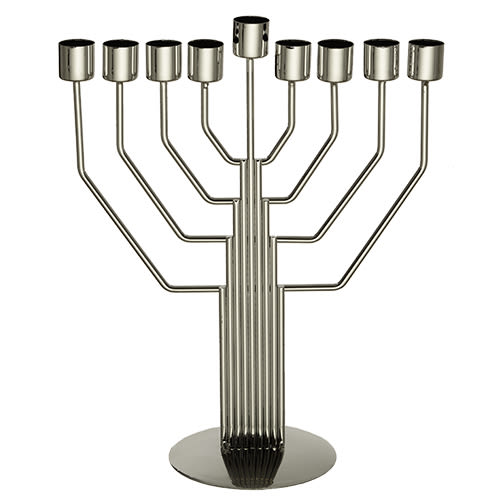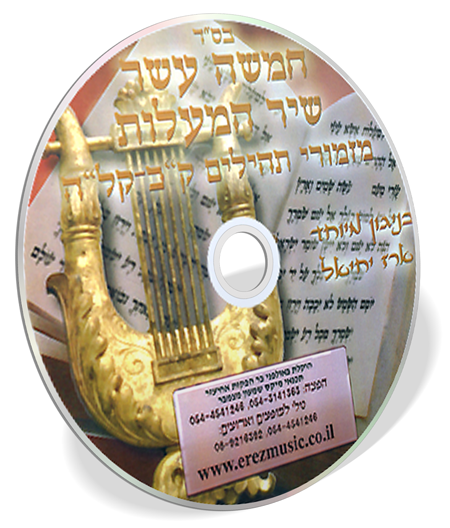
Expressing Our Gratitude
Think for a moment of all the kindnesses, miracles, and wondrous acts that Hashem has done for us and our forefathers, both in the past and in...

Hakarat hatov (gratitude) enables us to overcome all obstacles in our avodat Hashem (serving Hashem), even those desires which appear beyond our ability to overcome.
Before the Anshei Knesesset HaGadolah (the Men of the Great Assembly) destroyed the desire for idol worship, the Jewish People actually craved idol worship! They had an overwhelming longing to bow down to false gods! Since the craving for idol worship was so strong, why, during the period of the Judges, were the Jewish People criticized for worshiping idols?
Because they did not have sufficient hakarat hatov to counter their desire for idol worship.
Hakarat hatov has the power to thwart the yetzer hara, the desire for evil. Through reviewing our lives and acknowledging all the good that Hashem has done for us, we can overcome our evil inclination, even an inclination as overwhelming as the desire to serve false gods.
Think for a moment of all the kindnesses, miracles, and wondrous acts that Hashem has done for us and our forefathers, both in the past and in the present. This feeling of gratitude will give us the strength to overcome our yetzer hora and to replace it with the desire to do Hashem’s Will.
When we are grateful to Hashem, we naturally want to honor the Torah and those who study the Torah. By living our lives according to this attitude, we set a proper example for our children and instill them with a love of Hashem and His Torah.
Gratitude to Teachers
“One who learns from his fellow a single chapter [of Torah], a single law, a single verse, a single statement, or even a single letter, musts treat him with honor” (Pirkei Avot 6:3).
Dovid HaMelech (King David) learned two halachot from Achitofel: 1) one should not learn Torah by himself, and 2) that it is necessary for a person to enter the Beit HaMidrash with reverence and derech eretz until the fear of Heaven is upon him.
Although Achitofel was a rasha (wicked person) who earned no portion in the World to Come because he spoke lashon hara (forbidden speech), Dovid HaMelech honored Achitofel to such an extent that he referred to him as his “personal Rebbe.”
Dovid HaMelech understood the importance of Torah and therefore understood that even two halachot are important enough to obligate a person to express hakarat hatov. If Dovid HaMelech was obligated to honor the evil Achitofel, how much more so is one obligated to honor a Torah scholar from whom he has learned even the smallest amount. This is the meaning of hakarat hatov.
“Praiseworthy are those whose way is perfect, who walk with the Torah of Hashem” (Tehillim 119:1). The Medrash asks, “What is the meaning of the words, ‘Praiseworthy are those whose way is perfect.’ They seem superfluous. It would have been enough to say, ‘Fortunate are those who walk in the Torah of Hashem.'” The Medrash explains these words to mean, “Fortunate are those who honor a Torah scholar, who walk in the Torah of Hashem. The Medrash continues, “It is a tree of life for those who grasp it, and its supporters are praiseworthy.” Similarly, Moshe (Moses) said, “If you will guard a Torah scholar, that is, to honor him, then the Torah will also guard you and honor you.”
“Those who honor Me, I will honor, and those who despise, will be put to disgrace” (Pirkei Avot 4:1). This means that one who honors a Torah scholar, it is as if he is honoring Hashem. Alternatively, those who do not honor a Torah scholar because they do not appreciate the value and importance of the Torah, will be put to disgrace.
Our obligation to honor a Torah scholar is a direct result of our obligation to honor the Torah itself, for a Torah scholar devotes his entire life to learning Hashem’s message and transmits the Torah to the Jewish People. The obligation to honor the Torah stems from our duty to act with gratitude for everything that the Torah does for us. The Torah is our life and the length of our days; it brings us closer to Hashem and to the World to Come. Honoring a Torah scholar is really honoring Hashem. The foundation of this obligation is as the Chinuch explained in connection with kibud av v’eim (honoring parents): to show our gratitude for all the goodness bestowed upon us.
The Gemora brings this idea to a practical level by relating the famous tragedy of Rebbe Akiva’s disciples. The incident occurred several weeks before Shavuot. Rebbe Akiva had twelve thousand pairs of talmidim who all died at the same time because they did not display sufficient honor towards each other.
Why does the Gemara refer to the disciples as twelve thousand pairs, and not simply as twenty-four thousand disciples? Furthermore, what’s so terrible about what they did? It wasn’t as if they were not nice to each other. They simply were not honoring each other properly; yet they died a cruel death. Furthermore, the Gemara tells us that the world remained desolate until Rebbe Akiva came to the Rabbis of the south and taught them Torah.
Rebbe Akiva’s disciples were not merely lacking in kavod HaTorah (respect for the Torah), they were lacking the very essential and important midah of hakarat hatov! The Gemara states that there were twelve thousand pairs of disciples because the twenty four thousand disciples learned together as chavrutot (learning partners). Each of the disciples benefited from his friend. If we are obligated to honor someone from whom we learned even one letter, how much more so are we obligated to show kavod to our chavruta from whom we benefit constantly?
The disciples were punished so severely because the lack of hakarat hatov is a grave sin. Their lack of hakarat hatov toward their chevrutot reflected a lack in their appreciation of Torah, a midah that was not befitting their stature as disciples of the great Rebbe Akiva. For that reason, they were unfit to transmit the Torah to future generations.
Why did this terrible tragedy occur specifically during the period between Pesach and Shavuot? So that we can approach kabalat HaTorah (the receiving of the Torah) properly, by preparing ourselves as follows:
- Reflecting and contemplating how the Torah impacts our lives and brings us to the World to Come
- Internalizing and acting upon the connection between hakarat hatov and the importance of honoring both the Torah and Torah scholars
Through properly appreciating the importance of the Torah and how the Torah constantly impacts our lives, we will become proper vessels to receive the Torah.
In summary, if we constantly recognize and remember:
- What Hashem has done for us
- What Hashem is constantly doing for us
- What Hashem will be doing for us
- What Hashem does for us without our being aware of it
we will always feel hakarat hatov.














Tell us what you think!
Thank you for your comment!
It will be published after approval by the Editor.